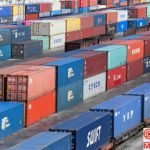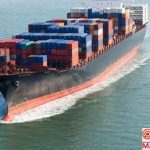Supply chain crisis hits world economy
Everything had been going well, the Guardian reported on Oct. 2. A successful vaccination program would drive a post-epidemic recovery in the global economy, stock markets were back to record highs, and prices were rising just enough to make deflationary fears a thing of the past.
But the supply crunch that initially put a question mark over whether there would be enough PlayStation consoles under the Christmas tree is swinging into a crisis involving energy, labor and a shortage of transportation capacity from Liverpool to Los Angeles.
All of these issues are entwined in one way or another with the spike in post-epidemic consumer demand, according to the report. But taken together, they could lead to what one leading economist calls a “stagflationary wind” that could derail the world economy.
Mohamed El-Erian, an adviser to insurance giant Allianz and dean of Queen’s College, Cambridge, said the world economy could see a recession while prices still rise rapidly, a doomsday double whammy that nearly wiped out Britain in the 1970s.
He said, “The supply chain crisis will hit the world economy much longer than most policymakers expect, although businesses are not that surprised. Governments will have to rethink quickly because the three factors – supply side, transportation, and labor – are tangling together to blow a wind of stagflation across the global economy.”
Cases of supply chain crisis
The report notes that energy shortages are providing the most dramatic example of the problem: A growing number of gas stations in the U.K. are running out of fuel, while some Asian cities are having to pull the plug on electricity and international freight rates are soaring as demand in the West is about to peak in the run-up to Christmas.
The report said that as the world unfolds the scramble for gas and oil, many countries are in trouble because they don’t have enough energy. Oil prices have nearly doubled in a 12-month period to nearly $80 a barrel.
The report pointed out that, coupled with the ongoing implementation of restrictions related to the COVID-19 epidemic in some major manufacturing countries such as Vietnam, as well as the widely reported shortage of components such as computer chips, factories are completely unable to produce enough products.
British car production fell 27 percent year-on-year in August due to a lack of semiconductor components, leading to a sharp drop in exports to Australia, the U.S. and China, according to reports. on Sept. 30, the Volkswagen Group, Ford and the Strandtis Group, which makes Opel cars, announced a new temporary work stoppage in Germany due to chip supply problems. Opel will close a plant until 2022 – the longest-lasting plant shutdown to date.
In Japan, the manufactured goods inventory index has reportedly fallen to levels that have not been seen since the 2011 earthquake and tsunami disaster.
But even if factories can get more energy and raw materials and can make more products, it still costs more to ship them, the report noted. The Drury Shipping Index, which measures container freight rates, rose 291 % compared with a year ago. Some busy routes – such as from East Asia to Rotterdam, Europe’s largest port – have seen unit freight rates for containers rise to six times the original rate in the past year.
The report also points out that supply chain problems do not end when cargo arrives at shipping ports, with labor shortages becoming the final piece of the puzzle in the increasingly rocky journey of products to their final destinations. Shortages of truck drivers in many parts of Europe, either due to disputes around labor entitlements or due to ongoing epidemic restrictions, are causing shipping delays.
CQI5 is committed to providing importers worldwide with product quality inspection services that far exceed those of our peers. If you are planning to import or have imported from China or Southeast Asian countries, please contact us cs’@’cqipro.com to learn more about how we can make your imports safer.
Disclaimer:
CQI5 article information from the Internet and contributions, the copyright of which belongs to the original author, and only represents the views of the original author. This website is only responsible for sorting out, typesetting and editing the articles, reproduced for the purpose of spreading more information, does not imply that it endorses its views or proves the truthfulness, completeness and accuracy of its content, and therefore does not assume any legal responsibility.
The information contained in this article is for reference only and is not intended as direct advice for decision-making.
If we inadvertently violate your copyright, please inform us, after verification, we will immediately correct or delete the content according to the requirements of the copyright holder, thank you! Contact, email: copyright@cqipro.com
This website has the final right to interpret this statement.
Welcome to reprint, please be sure to keep information complete.





